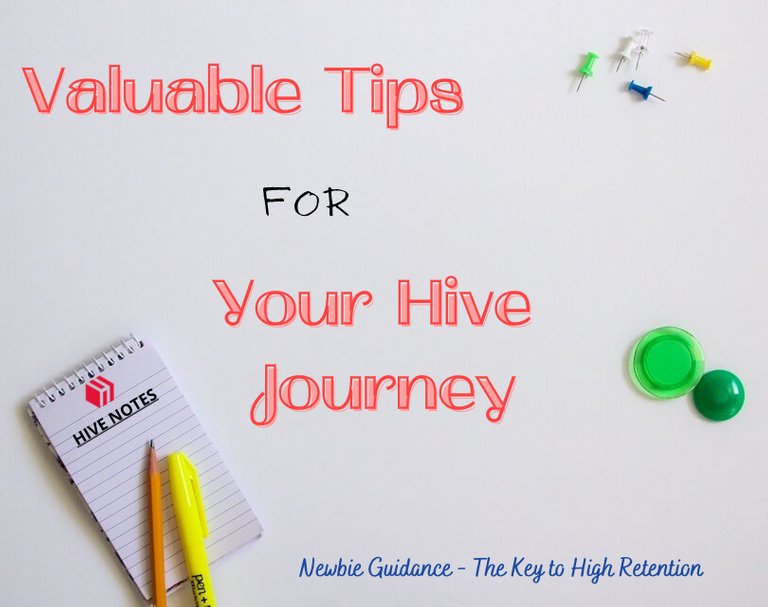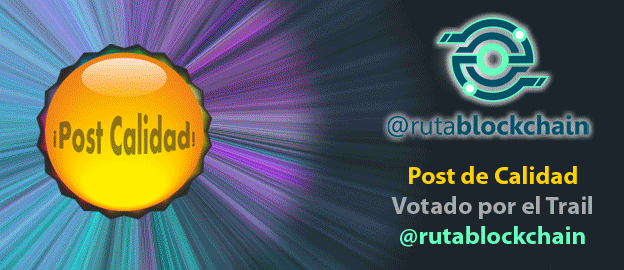
When I saw the latest challenge presented to us by @rutablockchain for providing the Best Tips for Hive Newbies I got really excited about joining in. If you’ve been following my blog you’d know that providing tips and guidance is something I like to do on a regular basis.
I have posted advice on several different topics (I’ll add links at the end) but I thought it would be nice putting what I consider the top starter tips altogether in this one post.
I will mention several things to consider but only go into details on the topics I am most knowledgeable about where I feel my teaching will be most beneficial for you.
This post is setup in a step by step manner. If I were to start over again from the beginning with everything I’ve learned in the past six years, this would be the order I would do things to get settled on Hive. I believe this to be a good order in preparing someone to have a successful and enjoyable experience here.

First, let’s talk about all the things you should do…
Before Your First Post:
I know after finding out about Hive some are eager to get in here and start blogging right away even before they really know what they’ve signed up for. The things I mention next will help you get more comfortable and familiar with the environment here and get you set up for better support on your publications.
Before diving straight in it’s best to get a feel of the environment and how things are set up. It’s the same as getting a new membership somewhere. You look around and check out all the perks and what that organization has to offer. It’s also wise to know the etiquette of a place to avoid the Dont’s and embrace the Do’s.
Getting familiar with the Hive ecosystem will get you off to a smoother and less confusing start.
Some things to search/ask about - your keys and the importance of keeping them safe, Hive frontends, setting up your profile, resource credits, reputation score, hive power and powering up, delegations, witnesses, curation and rewards
One thing I learned when first joining was that no one knew I was here yet. I barely received any comments or interaction on my posts. While I was sitting there saying
I hope people find my post and read it.
there were others thinking and saying the same thing.
No one is going to know you’re here unless you get out there and make connections. Spend a few days a week or a little bit of your time a day doing nothing but reading and commenting. Engagement is one of the most valued aspects of Hive so it’s good to make this a habit early on. This will also help you find people of interest to follow.
When commenting and replying to posts be careful not to make them spammy or repetitive. Creating content takes time and effort and a writer deserves to have genuine comments left for feedback. Please make sure your responses are thoughtful and considerate.
For example, don’t just leave it at “Nice post!” Instead, explain why you thought it was a nice post. Your goal should be to leave something that will be beneficial to the author whether it be encouraging, complimenting, or relating to them.
This step is so important and has a huge influence on the quality of your posts and how much fun you have here. Let me explain…
If your aim is to write a post that lands on the trending page and you decide to choose a Hot topic that shows up frequently, then you most likely will not produce the best quality content you’re capable of. If you’re not knowledgeable or passionate about that topic then your writing won’t flow. On top of that you won’t enjoy it because it would actually be more work (doing extra research and background stuff just to try to understand what you’re writing about) instead of an enjoyable effort.
Why not write about something that flows off your mind and that you already enjoy talking about anyway? Your goal is to captivate, stimulate and excite your audience not to bore them which would cause them to leave the article.
Jot down the areas you are familiar with and the ones you want us to learn about. What excites you and gets your wheels turning? Let your passion do the writing and you’ll have a better chance at writing quality content.
Once you’ve narrowed down the things you’ll be posting about it’s time to find the communities that are a fit for your topics of interest.
Go through the list of communities. Once you find one that fits your niche, read through the About section to get familiar with how that community is set up. Make sure to read the rule section because each community has their own. If you like what you see you can Subscribe to it but you don’t have to be subscribed in order to write a post there.
To learn more about communities, their purpose and how to post in them please read this very informative article Communities Explained - Newbie Guide written by @erikah.
One of the biggest learning curves for me was learning how to use markdown. I had never used it before and had to read several posts and watch videos on how to do it correctly. Educating yourself on this will help your writing process go a lot smoother.
The other part of this is formulating your posts for an easy read. Being creative with your title will entice readers to want to read what’s inside. Another good practice is writing a short introductory paragraph about the topic you’re sharing, this gives your audience more detail about what to expect from their read.
I try to aim for keeping my paragraphs no longer than three sentences. I also like including one sentence lines to help break up the content a bit. You want to go easy on the eyes and make sure your post flows nicely to keep your readers interested and engaged.
Always try to include a wrap up sentence or paragraph to close your article out nicely. You can do so by adding a review of what was discussed, a final thought or closing line.
Plagiarizing and the lack of care and effort to cite sources is one of the biggest causes of downvotes, being labeled as a spammer, getting blacklisted and muted from communities.
I can’t stress enough how important it is to understand what plagiarism is and how to avoid it.
According to Oxford Languages, plagiarism is the practice of taking someone else's work or ideas and passing them off as one's own.
The golden rule I always go by with everything I do on and offline is: Give Credit Where It’s Due!
The mistake I see made is people not realizing that if you take even just a sentence from another article and not source it, it’s plagiarizing. It doesn’t matter how short it is, if you’re copying and pasting someone else’s words, work or content, you need to give credit where it’s due.
Let’s say you visit a facility and learn all about it’s history and the architecture. You then want to write a post about your experience. To make things go quicker you decide to copy and paste an article you found online about it without citing the source.
You try to justify yourself by explaining you just visited there and knew all of the information anyway. This still doesn’t give you the right to copy someone’s work without giving credit. Even if you paraphrase some of the article it still needs to be sourced.
If it’s not your own words, please source it (adding the link from where you got the info).

Your Posting Journey Begins:
Now that you’ve got a handle on the Hive ecosystem and some important do’s and don’ts you are ready to start preparing for your writing adventures.
We’ll first cover some writing etiquettes before talking about your first post.
• Originality and Quality - create your signature style, be creative and be you
• Post Length - shoot for a minimum of 2 minutes (200+ words) - I personally don’t curate or nominate posts for an upvote if they fall under this mark (unless it’s a really impressive photo lol)
• Use Clear Photos - photos add an extra layer of interest and help keep your audience engaged - make sure they are clear and easy to decipher - if using Stock Images or images from a free site don’t forget to add the image credit and/or source link
Tag Usage - only use relevant and appropriate tags to match your topic - do not use unrelated tags to try to gain more attention and rewards - if you are unsure about a tag read up on it before using
Avoid Unnecessary Tagging of People - this is really looked down upon - please don’t add hundreds of people’s name to your post to attract attention and upvotes - you will get just the opposite
Do Not Double Post - double posting is also known as milking rewards - don’t publish the exact same post more than once

Whoo Hoo! Finally you are ready to roll with telling us all about yourself. Hopefully at this point you have already gained a following and supporters from connecting with others on their posts.
You should put some effort in this post since it will be a first impression for many who read it. You can remain anonymous (not showing your face) if you prefer but at least give some information about who you are, your interests, what can one expect to learn from you, what you’ll be sharing with us.
You can use tags like #introducemyself, #introduceyourself, #introduction or #intro. It would be a good idea to first browse those tags to get an idea on what these posts look like.
I strongly recommend you reply to your comments. It’s a polite thing to do knowing people took the time out of their day to read your content and leave you a comment. Some Hivers won’t support those who consistently leave comments unanswered.
I know not everyone is on Hive 24/7 or is able to make the time to reply to every comment but just make the best effort you can to acknowledge the comments left for you.
These are my Getting Started with Hive to have an Awesome Journey and an Incredible Experience on the Best Blockchain Ever Tips! 😆
The 3 friends I thought of that might also want to have a go at this initiative are @kattycrochet, @lauramica and @jicrochet.
I’ll leave you with some other links that might be of help to you…
So What’s The Criteria For A Quality Post? - How Curators Make Their Selections...
How Impactful is Your Content? Do You Stand Out?
What’s Hive Engagement All About? It’s definitely not a one way call!
Follow Up | Follow Through | Follow the Rules
You can also check out @newbies-guide and browse the collections.







